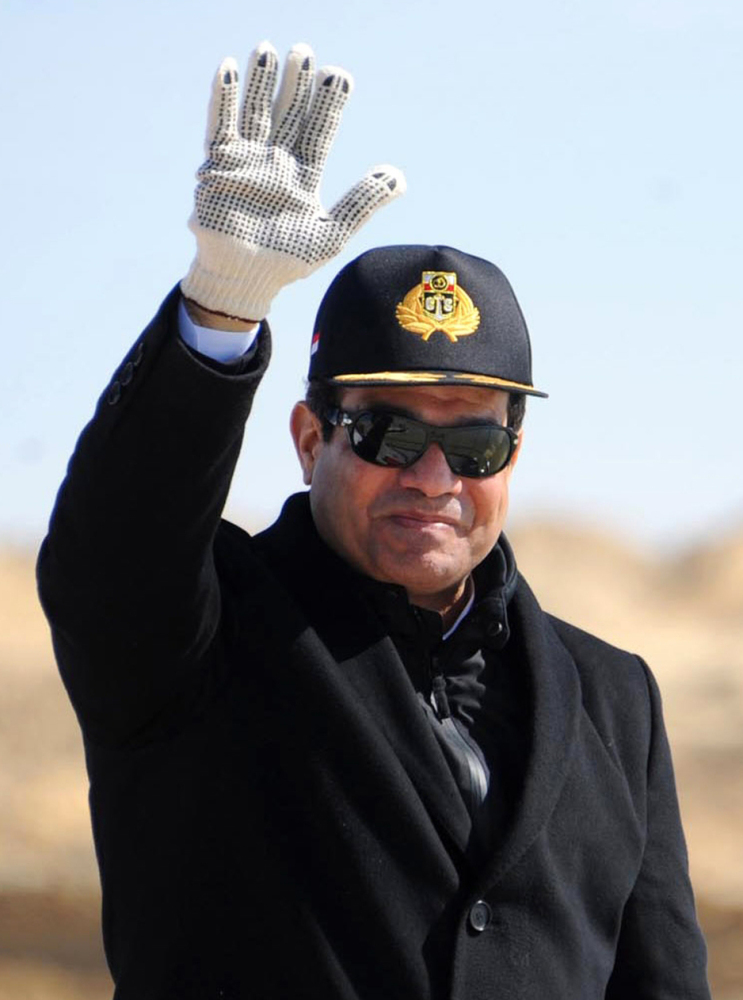CAIRO — Egypt is to unveil a major extension of the Suez Canal on Thursday, a mega-project that has emerged as a cornerstone of President Abdel-Fattah el-Sissi’s efforts to restore national pride and revive the economy after years of unrest.
The 1869 inauguration of the canal linking the Red Sea to the Mediterranean was hailed as a leap into the modern age, and President Gamal Abdel-Nasser’s nationalization of the British and French-run waterway in 1956 was seen as marking Egypt’s decisive break with its colonial past. That sparked the second of four wars with Israel, including a 1973 offensive launched across the canal that Egyptians celebrate as their greatest military victory.
The government hopes for another historic moment Thursday, when it unveils an $8.5 billion extension of the waterway funded entirely by Egyptians, without foreign aid. The media and government supporters across the board have breathlessly repeated the same message – after four years of strife and the overthrow of two presidents, Egypt is back.
“Our culture can be very sentimental, and this was the first time Egyptians have been so galvanized,” said Adel Beshai, professor of economics at the American University in Cairo. “It was a brilliant idea by el-Sissi – the Egyptians now own the canal.”
He views the expansion as the first step in a new area of development, free of the public sector’s notoriously crippling bureaucracy. The key global trade route is already one of Egypt’s top foreign currency earners, and is run by a semi-independent authority with 25,000 employees that is considered one of the country’s most competent bodies.
“It is opening infinite horizons. It is going to be handled outside the ossified bureaucracy that has been holding us back,” Beshai said.
Send questions/comments to the editors.



Success. Please wait for the page to reload. If the page does not reload within 5 seconds, please refresh the page.
Enter your email and password to access comments.
Hi, to comment on stories you must . This profile is in addition to your subscription and website login.
Already have a commenting profile? .
Invalid username/password.
Please check your email to confirm and complete your registration.
Only subscribers are eligible to post comments. Please subscribe or login first for digital access. Here’s why.
Use the form below to reset your password. When you've submitted your account email, we will send an email with a reset code.